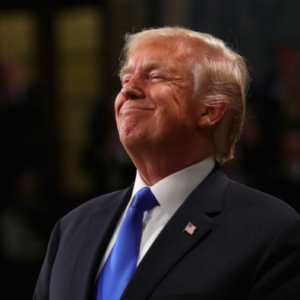White Americans pushed backed. Pushed back against racial progress in our recent election.
Although President-elect Biden won, there were still 73 million votes cast for a president who has supported white nationalism and spouted racist slurs against virtually every person of color.
Support for Donald Trump in light of his racist views is very disheartening. This is a country that idealizes fairness and opportunity for all, regardless of race and background.
On civic holidays our citizens proudly herald an image of people from every nation eagerly coming to our shores to reach for the American Dream.
The pictures, often with all people clean and prosperous, holding hands, and perhaps singing patriotic songs together, deny the reality that for over 250 years we have always been a racist society and have only made limited progress in pushing that back.
The impact and continuing influence of Donald Trump severely limits this regrettably slow progress.
Before racial progress can make further advances, a majority of Americans need to recognize that racism is a serious problem. That message is clearly absent.
If anything, almost half of Americans voted to indicate that it is either not an issue for them or they don’t care about it.
A recent Pew Center report indicated that only five percent of Trump supporters believe that “White people have a great deal of unfair advantages over people of color.”
While the intense racism observed in far too many Trump supporters is worrisome, it would be an enormous mistake to believe that only openly racists are the problem.
As Phillip Kennecott of the Washington Post writes, it is not just the avowed racist but those “…who downplay the problem, or align with it for personal gain, or who are simply unwilling to acknowledge its history and persistence.” This is the similar message argued by author and professor Ibram Kendi.
According to Kendi, denying that white privilege exists is racist. Denying that black and brown people don’t have the same opportunities in education and medical care is racist. Denying that voter suppression exists is racist.
Believing that the criminal system, including the enactment of laws, mass incarceration and law enforcement is fair, is racist. Supporting politicians who are clearly racist is racist.
We live in a primarily segregated society. As long as we do not live close to or work with people of color, we will not hear their voices and will not alter our views.
Until we see that non-white people bleed the same color of blood, as author James Baldwin famously said, love their families, work hard, face similar fears, anxieties, stresses and worries, we will remain a racist society.
Prejudice occurs in both urban and rural areas, but it is no accident that the more racially progressive urban areas tend, on the whole, to rub shoulders more with people of color and see that they share our same human experience. It is no accident that these closer experiences cause a reduction in prejudice.
Segregation or isolation from people of color is a petri dish for racist attitudes. Those who have fewer contacts with people of color are generally more likely to have voted for our racist president.
With his outspoken rhetoric, he has given permission for those who are racist in the extreme to spew their hatred and prejudice. It is inappropriate to say that all Trump supporters are racist but too many are, either overtly or covertly.
One-hundred and twenty-seven years ago, Frederick Douglass, speaking at the World’s Fair in Chicago, said, “Men talk of the Negro problem, there is no Negro problem.”
With his voice rising, he continued: “The problem is whether the American people have loyalty enough, honor enough, patriotism enough, to live up to their own Constitution.”
Well over a century later the problem remains the same: White Americans’ unwillingness to acknowledge what many historians have called America’s original sin: The legacy of White racism.
The racism of Donald Trump and a good portion of his followers are one mountain to overcome. The need for the rest of us to raise up our voices is a mountain just as steep.

